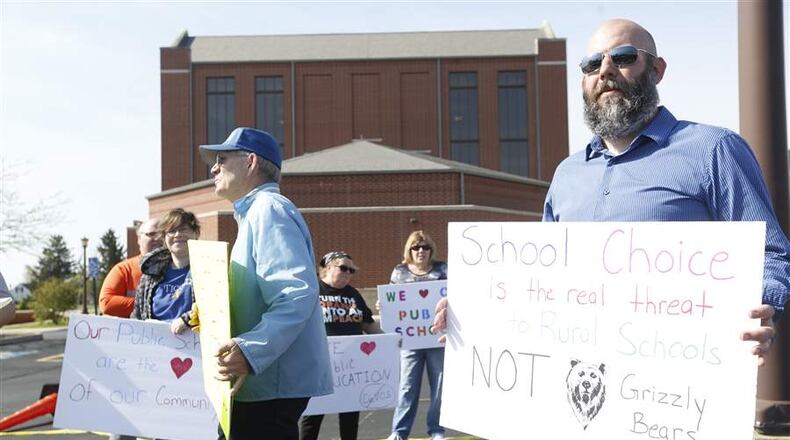One of the nation’s leading researchers on the impact of vouchers on educational quality described the Georgia Senate bill to use taxpayer money to send students to private schools as a “boondoggle” that will derail the progress Georgia has been making, improvements that he says ought to be built upon rather than undermined.
In a 28-25 vote Tuesday, the Senate rejected Senate Bill 173, but it is scheduled for another vote Thursday, which is the crossover deadline for when legislation must pass one chamber of the General Assembly to stay alive.
The bill has the support of Gov. Brian Kemp who is reportedly pressuring the GOP senators who voted against it to reconsider. (I asked his office for comment, but no response thus far.)
Labor economist Martin Carnoy of Stanford University is a longtime researcher on school choice with a focus on the impact of vouchers on educational quality.
In a telephone interview today on Senate Bill 173, Carnoy said, "There is no evidence this is going to improve Georgia schools. And, by the way, Georgia schools have been improving according to the National Assessment of Educational Progress."
(Described as the gold standard of testing, NAEP is a continuing and nationally representative assessment of the academic performance of U.S. students.)
“If Georgia schools are improving at a pretty good clip and there is no evidence that kids are going to do better as a result of this bill, the only thing it seems to do is give a small group of people a subsidized choice,” said Carnoy, who has written more than 40 books and 150 articles on economics and education.
And that subsidized choice in SB 173 will come at great risk to public schools, which, according to the state’s own analysis, would see $48 million of tax dollars go out the door in the program’s first year, rising to a maximum of about $543 million in a decade as more students participate.
“There is no sort of economic justification for this in the sense that you will get a bigger bang for your buck,” said Carnoy.
While Georgia's newly elected Republican leadership may have an ideological preference for less government, greater choice and believe that private is better than public, Carnoy said, "It is like shooting yourself in the foot. Georgia's future depends and will continue to depend on improving its public schools. If you divert attention from that idea, you will end up like North Carolina where the education renaissance under Gov. James Hunt in the 1990s has now trailed off. For many years now, North Carolina has not built on its previous success. This is a danger for Georgia."
But what about the pro voucher senators at Tuesday’s hearing who bemoaned Georgia’s chronically failing public system?
“I can send you test data from Georgia over the past 20 years to show that is just not true. It is a myth. If you assume the National Assessment of Educational Progress means anything in terms of what kids are learning, the scores are going up. I would say Georgia is in the top third of states that are doing better, where kids are learning more. Georgia has tried some pretty interesting stuff, including the HOPE Scholarship.”
Under Georgia’s Republican administrations up until now, Georgia has steadily improved its public schools, said Carnoy. “They have to keep going. If you divert attention and take away money, that is going to kill the horse.”
Carnoy said gains in public school performance nationwide have cast even more doubt on the value of vouchers. "Because of the gains in public schools, most recent voucher studies in Indiana and Louisiana have shown a big negative effect on kids who move to voucher schools. In the past, the effect was just neutral; in more recent years, it is negative."
Carnoy points to the two voucher plans in Washington, D.C., which have been the subject of multiple evaluations. "They show absolutely no gain,'' he said.
In Milwaukee, 75 percent of students take advantage of the 20-year-old school choice program that is the nation’s second largest, after the more recent program introduced in Indiana.
“But they are at the bottom and stayed at the bottom,” said Carnoy.
Some studies have shown that, even while vouchers may not raise academic performance, they raise high school graduation and college attendance. Carnoy points out the seldom acknowledged reality that private schools that accept vouchers can ease out low-performing and unmotivated students.
His recommendation to states: Rather than privatization, invest in policy changes that pay off, including teacher training, early childhood education, after-school and summer programs, student health programs and heightened standards in math, reading and science curricula.
About the Author
The Latest
Featured



